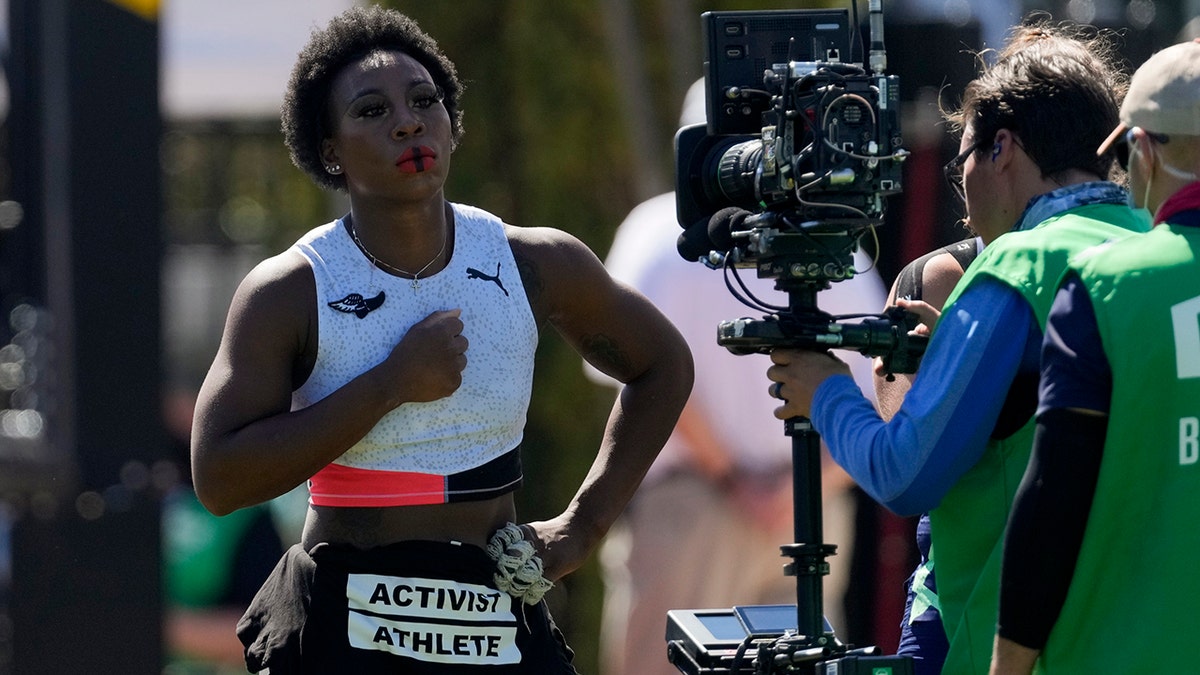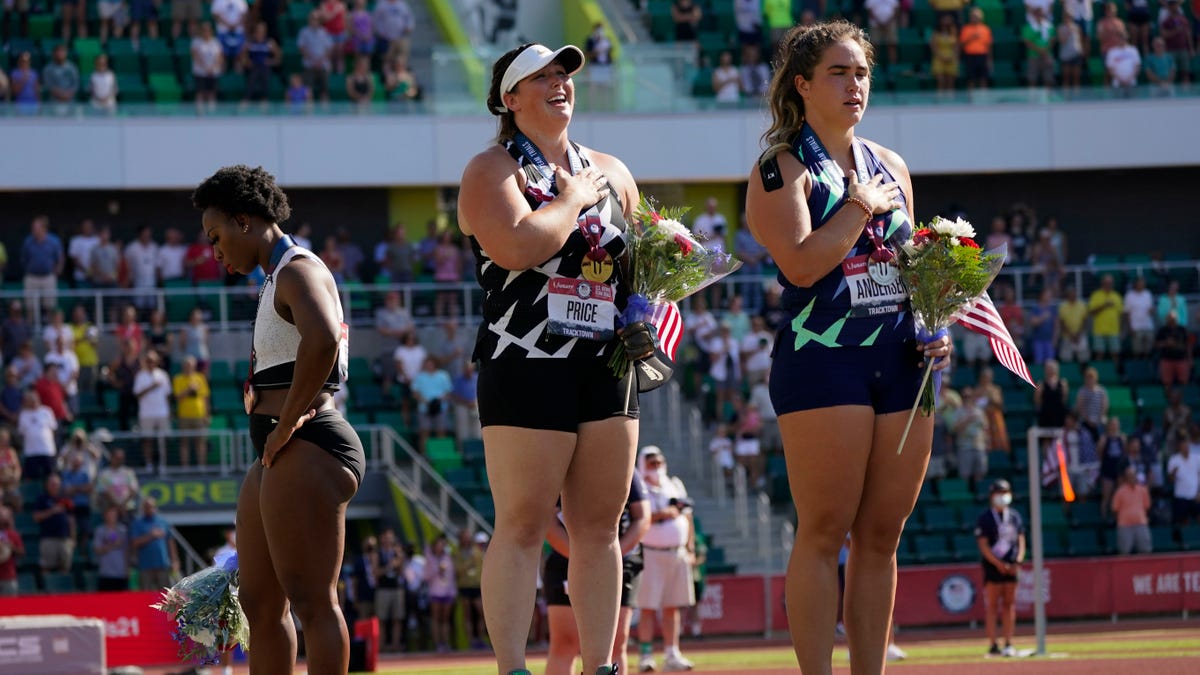Fox News Flash top headlines for June 28
Fox News Flash top headlines are here. Check out what's clicking on Foxnews.com.
The American track and field star who snubbed the national anthem during US Olympic trials over the weekend is an outspoken activist for racial justice — and committed to making her mission "bigger than sports."
Gwen Berry, 31, took one of her most high-profile stances yet on Saturday when she turned away from the American flag during "The Star-Spangled Banner" on the podium.
"The anthem doesn’t speak for me. It never has," said Berry, who received the bronze medal in the hammer throw.
Her reaction to the anthem garnered its fair share of attention, though she’s learned before the power she has to highlight injustice in the sports world — famously raising her first during the medal ceremony at the Pan American Games in 2019.
"My purpose and my mission is bigger than sports," Berry said.
CLICK HERE FOR MORE SPORTS COVERAGE ON FOXNEWS.COM
Childhood

FILE - In this May 21, 2017, file photo, Gwen Berry, of the United States, competes in the women's hammer throw at the Golden Grand Prix athletics meet in Kawasaki, near Tokyo. (AP Photo/Shizuo Kambayashi, File)
Berry grew up in Ferguson, Missouri, and was raised by her father, Michael, who spent hours in the library each week educating himself on black history and civil rights, ESPN reported.
When he came home from the library, he would teach Berry what he learned, even though she was too young at times to understand, the outlet reported.
"My dad taught me a lot about this world and this life, especially about history and African history," Berry told the outlet.
"He was always a rebel, always spoke up for himself, did what was right for himself and his family, and I feel like that’s where I get some of my drive from."
Activism

Gwendolyn Berry is introduced before the finals of the women's hammer throw at the U.S. Olympic Track and Field Trials Saturday, June 26, 2021, in Eugene, Ore. (AP Photo/Ashley Landis)
Berry decided to go all-in on her track-and-field career after graduation from Southern Illinois University-Carbondale in 2011, but couldn’t shake the feeling that her pursuit was insignificant compared to other happenings in the world, ESPN reported.
She could no longer ignore that feeling when Michael Brown, 19, was shot by police while he was walking home unarmed in her hometown of Ferguson in 2014.
"I walked the streets, everybody was walking and protesting, and you could just feel the tension," she told ESPN.
"My heart was broken. Here is this young man — another young man — that’s just killed, unarmed and killed. It made me question, ‘Why is this becoming a thing?'"
She said the experience "woke her up."
"I just had to look at myself and say, ‘This could be my child. This could be my brother. This could be my uncle,'" she said.
Following in the footsteps of her father, she began to educate herself more about black history and the systemic problems in the US, the outlet reported.
She started attending one of the Freedom Schools, which were established during the civil rights movement for African Americans to learn about social and economic justice.
"It was a turning point for me mentally, emotionally and, honestly, physically," she said of the lessons that she was learning at the school, ESPN reported.
"It made me want to stay healthy and just up my game. Because the people who came before me were so powerful. They were survivors. So who am I not to survive, when I honestly have it easier than them?"
CLICK HERE TO GET THE FOX NEWS APP
Pan American Games 2019

Gwendolyn Berry, left, looks away as DeAnna Price and Brooke Andersen stand for the national anthem after the finals of the women's hammer throw at the U.S. Olympic Track and Field Trials Saturday, June 26, 2021, in Eugene, Ore. Price won, Andersen was second and Berry finished third. (AP Photo/Charlie Riedel)
As she was preparing for the Pan American Games in 2019, Berry began to think more about "The Star-Spangled Banner," which was written in 1814.
"Land of the free, home of the brave — do they include minority people? Because black people were considered three-fifths of a person at the time," she said.
Berry reflected that sentiment when she raised her fist during the national anthem after she won the gold medal at the Pan-Am Games in Lima, Peru.
"At the last part — ‘land of the free and home of the brave’ — something just came over me," she told ESPN. "It made me want to say, like, ‘OK, this is a great country, this is a great land, but as Americans, are we really standing for what the anthem says?'"
Her protest led US Olympic officials to issue new guidelines in order to allow peaceful expressions of protest "in support of racial and social justice for all human beings."
"I really didn’t think it would get as big as it did or be as powerful as it was," Berry told ESPN.
"As a human being, you have a lot of power, and you don’t really know it until you do something that creates something, and they say, ‘Oh, wow, I do have a lot of power. My voice does matter.'"









































